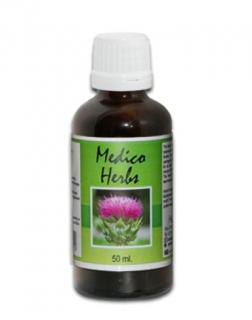
MedicoHerbs
Siberian Ginseng (Eleutherococcus senticosus) - 50 ml.
payments of R28 Learn more


Shop Online
and fill your cart
Choose Payflex at checkout
Get approved and
pay 25% today
with your debit
or credit card
Pay the remainder
over 6-weeks.
No interest.
No fees.
Eleutherococcus senticosus (formerly Acanthopanax senticosus) is a species of small, woody shrub in the family Araliaceae native to Northeastern Asia. It is often colloquially referred to as Siberian Ginseng or eleuthero and is sometimes shortened to E. senticosus in the medical literature. E. senticosus has been studied as an adaptogen, and has a history of use in Chinese medicine.
The herb grows in mixed and coniferous mountain forests, forming low undergrowth, or is found in groups in thickets and edges. E. senticosus is sometimes found in oak groves at the foot of cliffs, very rarely in high forest riparian woodland. Its native habitat is East Asia, China, Japan, and Russia. E. senticosus is broadly tolerant of soils, growing in sandy, loamy, and heavy clay soils with acid, neutral, or alkaline chemistry and including soils of low nutritional value. It can tolerate sun or dappled shade and some degree of pollution.
E. senticosus is a deciduous shrub growing to 2m at a slow rate. It is hard to zone 3. It flowers in July in most habitats. The flowers are hermaphroditic and are pollinated by insects. E. senticosus is a new addition to Western natural medicine but has quickly gained a reputation similar to that of the better known and more expensive[citation needed] Chinese Ginseng. Though the chemical make-up of the two herbs differs, their effects seem to be similar. An extensive list of research on E. senticosus with links to PubMed is available. The herb is an adaptogen, is anticholesteremic, is mildly anti-inflammatory, is antioxidant, is nervine, and is an immune tonic[citation needed]. It is useful when the hypothalamic-pituitary-adrenal axis (HPA) is depleted. Symptoms of this condition include fatigue, stress, neurasthenia, and sore muscles associated with the hypofunction of the endocrine system, and adrenal exhaustion indicated by a quivering tongue, dark circles under the eyes, and dilating/contracting pupils. Eleuthero may alleviate these symptoms.
Taken regularly, it enhances immune function, decreases cortisol levels and inflammatory response[contradiction], and it promotes improved cognitive and physical performance[citation needed]. In human studies, Eleuthero has been successfully used to treat bone marrow suppression caused by chemotherapy or radiation, angina, hypercholesterolemia, and neurasthenia with headache, insomnia, and poor appetite. The major constituents of E. senticosus are Ciwujianoside A-E, Eleutheroside B (Syringin), Eleutherosides A-M, Friedelin, and Isofraxidin








